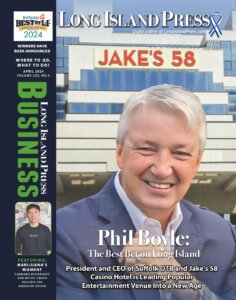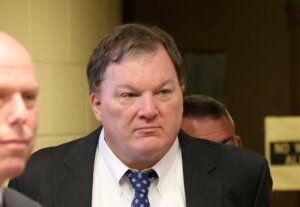 What would lead a Hollywood director like Stephen Gyllenhaal to go grassroots to make a do it yourself indie like, well, Grassroots? Apparently the problematic state of American politics today, as Gyllenhaal described in this phone conversation about his movie. Grassroots is based on the Phil Campbell autobiographical novel Grassroots: Politics…But Not As Usual. And on the very strange real life campaign staged by alternative weekly music critic Grant Cogswell, with Campbell (played by Jason Biggs) at his side, in a far fetched bid to run for a seat on the Seattle City Council in 2001. Gyllenhaal shared unusual thoughts about, for instance, being motivated to make movies mostly about unmotivated people, the creative challenge of losing a local post-9/11 gunslinger inhabiting the novel, and presiding as dad over celebrity offspring Maggie and Jake, without letting it swell their heads.
What would lead a Hollywood director like Stephen Gyllenhaal to go grassroots to make a do it yourself indie like, well, Grassroots? Apparently the problematic state of American politics today, as Gyllenhaal described in this phone conversation about his movie. Grassroots is based on the Phil Campbell autobiographical novel Grassroots: Politics…But Not As Usual. And on the very strange real life campaign staged by alternative weekly music critic Grant Cogswell, with Campbell (played by Jason Biggs) at his side, in a far fetched bid to run for a seat on the Seattle City Council in 2001. Gyllenhaal shared unusual thoughts about, for instance, being motivated to make movies mostly about unmotivated people, the creative challenge of losing a local post-9/11 gunslinger inhabiting the novel, and presiding as dad over celebrity offspring Maggie and Jake, without letting it swell their heads.
What got you inspired to make this movie?
STEPHEN GYLLENHAAL: I read the book, which really intrigued me. Because it was a story about two slacker dudes who really aren’t going anywhere in their lives.
And one of them is quite bitter, and the other is…a little crazy! You know, he likes to dress up in a polar bear outfit, and that kinda thing.
And I just thought, these are two interesting characters. And as iIread the true story, they were characters who would grow up in the process of this election campaign.
And I’m always intrigued by, what is the process of growing up. And how does that take place. And I love politics. So it was the perfect blend for me.
Plus, there was also the issue that they were taking part in a kind of campaign that’s a little bizarre. You know, they’re taking on the only African American City Couincil member in Seattle.
So there were a lot of things that were just plain inappropriate about it. And all of those things intrigued me, as both comedy and ultimately some drama.
Did you have any creative or political differences with Campbell, who is both the writer of the novel from which this film is adapted, and your film’s protagonist?
SG: There were differences that certainly gave him pause. He did say, look. I want to play with it a little. And he did. But the process of adapting a novel is always challenging, to say the least.
And I think he felt in the end, as did Grant Cogswell whose campaign it is written about, that it caught very much that spirit. You know, of what they went through.
Politically, I think I’m a little more optimistic than he is. But I’m also a little older. And I’ve come to understand, you know, that gains in politics aren’t short term gains.
I mean, the Democratic Party had tried since the early 1950’s, even the late 1940s. to get some kind of national health care plan.
And now here it is 2012, and we’ve got for the first time something along those lines. But it’s taken a long time. So I tend to look increasingly with a longer view. So I’m a little more optimistic than Phil!
Did you change any major stuff from the novel?
SG: There was a character after 9/11 who carried a pistol with him. And I tried draft after draft to keep that character in. Because I thought it captured something about our response to 9/11.
But it was just too much. And was I right, was I wrong? You know, you do the best that you can when you make a movie.
What do you feel that election, and your take on the election in Grassroots, have to say to audiences about the state of US politics today?
SG: Well, one of the things that’s happening, is that in October we’re taking the movie on a kind of a national campaign. During which Grassroots will be brought to college campuses across the country.
Because what emerged was, as we went from city to city, we began to spot local grassroots candidates. So that at each of the showings, we have had candidates get up and speak for five minutes or so, about their positions.
And they are candidates who are starting off with very little, and working with their families and friends to run their campaigns. They go door to door a tremendous amount of time.
And what that experience has been for me – and I think for anyone who has been in the audience when one of those people has gotten up and spoken – is a profound sense of hope. You know, that there are just so many people out there who just jump in and do it.
And my sense is very much that the movie is about look, you may not be a genius. You may even be a little nuts. But you just jump in and do it. You roll up your sleeves, and you don’t even know what you’re doing.
And if you do it, you’re taking part in democracy. Which is messy. It’s confusing, and it’s been that way from the very beginning.
And as Van Jones said recently, it’s a contact sport. So just grow up. I mean, it’s just wonderful stuff, but you realize it’s a mess.
How would you compare grassroots politics with this sort of grassroots filmaking for you, especially in your struggle for your movie to be recognized and seen?
SG: Yeah, I think they’ve very, very similar. And I think some of the tools we’ve used in getting this movie out there – which will be a slow and interesting rollout – it’s a little bit of Hollywood, where I work a lot. And It’s a lot of Internet and thinking outside the box.
For instance this college tour that we’ll do right before the election, it’s just using your imagination. And not being afraid to work hard, and sleep on friend’s couches occasionally. And just save as much money as you can.
And it’s made me feel really – I’m a grandfather and I feel twenty-three again! So I think they’re very similar, in that you’re trying to get people to take you sertiously whether you’re a candidate or a movie.
But in the end, the movie or a candidacy, it’s about self-empowerment. You know, just roll up your sleeves and try it. Risk it. And if you’re really interested in doing it at your college, let us know and we’ll try and make it work there.
What would you say is the thread and the dirving force behind the movies that you choose to make?
SG: Usually characters that are a little outside, a little off the beaten path. I’m generally intrigued by people who don’t accept what’s going on, and the status quo.
You know, they’re either confused by it or driven nuts by it. And you know, just trying to battle with it. Those are the characters that intrigue me, and have always intrigued me.
And as a self-descibred kind of off the beaten path moviemaker, what is it like to have no less than two childre – Jake and Maggie – who turned out to be Hollywood celebrities?
SG: Ha! What does it feel like? Can you imagine what it feels like, it’s great. I mean, it’s amazing that they get to do what they want.
And amazingly, they’re not spoiled by that life?
SG: No. Well, they kind of grew up in that world, so I think they understand that it’s nothing terribly special. But it’s a joy to see.
Now your family, between the Gyllenhaals and the Foners, are both families with strong political roots and social convictions. What does that mean to you, and where do you think it comes from?
SG: Well, I think politics is another way of engaging in what it is to be a human being. I mean, the arts are exploring that, and engaging in it. And politics is a more mechanical way of doing it. Yet it can also be very inspiring.
And I think if you’re interested in human beings, you can’t help but become political. You know, I do have strong beliefs, and great disappointments in much of the way that America has gone lately. And I think a lot of people have felt that.
And I think it’s a lot about not staying attentive to the individual human beings. And to human beings as family, and human beings as community. But basically, human beings.
And I’m not interested in making superhero movies. You know, to tell us over and over again, that only superheroes can come in and clean up the mess that we’ve created.
And the only way were going to clean up those messes, is by not living in fantasy. But really dealing with the fact that we’re human, and we’re going to have to do it.
And I think it helps to have a sense of humor about all that, and not get too somber in the face of serious issues. But I think that one can’t help but be political. And try their best to move this species forward.
How do you feel about being in Hollywood, where most everyone else is only interested in money and fame?
SG: Well, there’s certainly a lot of that around. But I think that’s true in any business. I always thought that medicine would be a field where people are thinking about other people. But you find that it’s pretty messed up there too.
But I think I’m realistic, and I haven’t been perfect myself in all this stuff. So it’s hard, and it can be messy. And I’ve made my mountain of mistakes in my life, so it’s really difficult for me to judge anyone else. You know, in terms of what they’re doing, or how they’re doing it.
And that comes back to politics too. I am a progressive, and I believe very much in the left wing. But I have a lot of respect for the right wing.
I grew up in a very conservative, religious community in Pennsylvania. And those are the people who send their sons and daughters off to war. And again, everyone is struggling.
Well how do you think you came from such a conservative and religious background, and ended up a progressive?
SG: I don’t think they’re far apart! I mean, I often think that one thing that gets in the way of progressives not being closer to people in the Tea Party, is the intellectual elite who feels superior. And if you begin to remove that, you start to see that there are very similar characteristics.
If you look at human beings and you look at them in a three dimensional way, it gets harder and harder to pass judgment on anybody, really, Particularly if you’re forced to be honest about yourself. So it gets pretty tough to throw the first stone.
NOTE: More information about the Grassroots fall college tour and getting your school involved, is online at: Grassrootsthefilm.com.
GRASSROOTS MOVIE REVIEW
Samuel Goldwyn Films, Rated R
2 1/2 stars
You don’t have to look too far these days to notice that quite a number of films abound with jobless and financially struggling characters, in stark contrast to the often recession-proof movies they inhabit. Top that off with the emergence of big election year themed movies turning up lately to stir into the volatile when not moody mix. And, enter Grassroots.
So is a movie about a local Seattle City Council election, however far fetched even if it actually happened, sufficient dramatic fuel for a feature film? Yes and no. Though a number of dismissive reviews for Grassroots lately, seem to confuse disdain for the topic of political campaigning itself – or even the real people these rabble-rouser characters are based on – with an assessment of the actual movie. Reality check, colleagues.
Situated chronologically in a post-millenial America in 2001, a few years after the explosive Battle Of Seattle protests against the WTO and just before 9/11 ensued, a rather unremarkable Seattle City Council election is gearing up. That is, until two unemployed alternative weekly journalists join forces to shake things up by running perhaps one of the most improbable but enthusiastic campaigns ever. Well, not exactly enthusiastic, at least for starters. The goofy pair consists of self-declared manic candidate out of nowhere Grant Cogswell (Joel David Moore), and glum pal Phil Campbell (Jason Biggs) whom he has to nearly drag into the race kicking and screaming, as his campaign manager.
Coasting along on mostly unfocused, giddy hyperbole having something or other to do with the city monorail, Cogswell in his greatest challenge may be locking horns with a rather laid back and affable incumbent opponent, Richard McIver (Cedric The Entertainer). And since McIver is African-American in an overwhelmingly white liberal city, any political attack against Cogswell’s rival has the potential of seeming insensitive, to say the least. Which it does.
But the defiant duo thanklessly presses forward – Cogswell high on daffy rhetoric, and Campbell concurrently nursing a broken heart over the woman who just dumped him in frustrated reaction to the entire fiasco. And all the while fueled by an imagined youthful people’s power that does in fact materialize. Sort of.
Written and directed by Stephen Gyllenhall (Waterland, Homegrown) and adapted from Phil Campbell’s book, Grassroots: Politics…But Not as Usual, this spunky political satire does its earnest best to invigorate a fairly slim story, and does in fact succeed in squeezing some lemons into lemonade in the process. But possibly most surprising of all, is Grassroots’ inadvertent prophetic conjuring of the Occupy Wall Street Movement to come, without even knowing it.



























